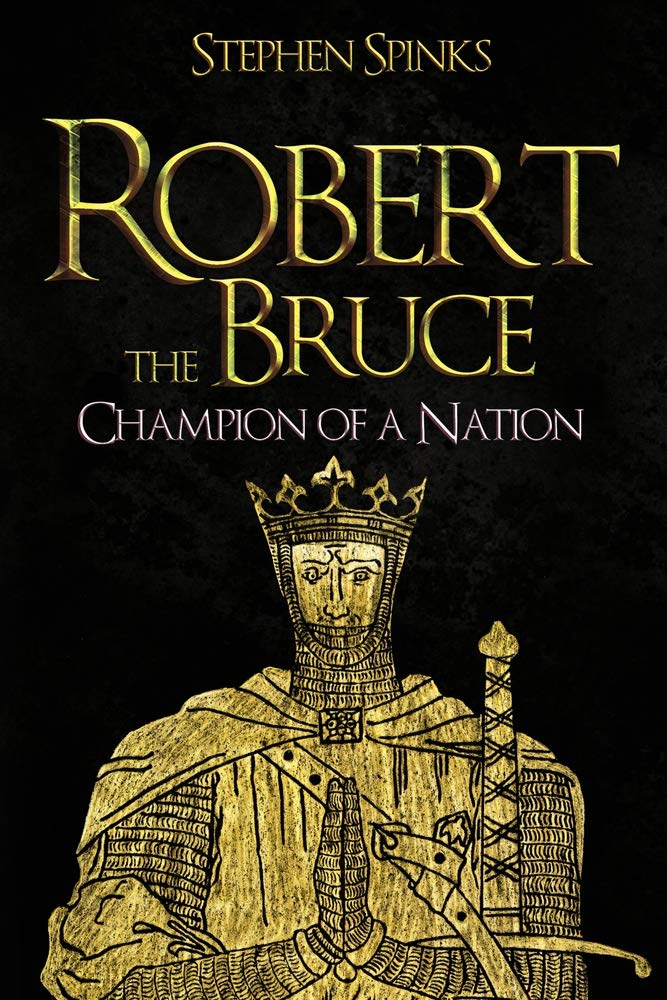Adventures in Bookland: Robert the Bruce by Stephen Spinks

For most people in England, and not a few in Scotland, the name Robert the Bruce will evoke vague memories of Bannockburn, some even vaguer recollections of a story about a spider attempting to spin her web and, for those of a certain age, attempts to unpick the historical from the completely made up in the portrayal of Robert in Braveheart (no, he did not betray William Wallace and he probably did not fight against him). So the publication of this new biography of Robert by Stephen Spinks is a welcome chance to bring the man who ensured Scotland’s independence for 400 years out from the shadows of forgetting and Hollywood mythmaking.
Spinks has written a classic narrative history of Robert’s life, beginning with a necessary preamble into the historical situation leading up to his birth – during which the relations between Scottish and English crowns had been most amicable – and taking in the disaster that struck the Scottish succession in 1286 when Alexander III died, falling from a cliff, his sons having predeceased him, leaving as heir his three-year-old granddaughter, Margaret, the Maid of Norway. The crisis metastasized when Margaret herself died, aged seven, on her way back to Scotland. Into this vacuum, the Scots overmighty neighbour, Edward I, King of England, began to assert his own claim to be overlord of the Scots. This claim, which in Edward’s mind rapidly became his right, was based on Geoffrey of Monmouth’s medieval bestseller, the History of the Kings of Britain – a work of supposed history in which Geoffrey enthusiastically filled gaps with the products of his fertile imagination – that found the origin of the Scottish and English crowns in the sons of a refugee Trojan prince, Brutus. Edward based his claim on the wearer of the Scottish crown owing allegiance to the wearer of the English crown on account of the latter being descended from the eldest son of Brutus. Edward, one of the most formidable warriors of his time, set about claiming his birthright, inititiating the wars for Scottish independence that would continue for all of Robert’s adult life.
It was a vivid time of double crossing, battles and personalities who resound down the centuries and Spinks does an excellent job of bringing them all to life, from Edward’s bulldozer tenacity to Robert’s youthful ruthlessness and his maturing into a soldier, king and statesman of genius. By setting the scene carefully, Spinks makes the many changes of allegiance understandable within the context of the times, before leading up to the climactic Battle of Bannockburn, when Robert, seizing an opportunity gifted by new intelligence, switched from his preferred guerrilla tactics to a sudden, unexpected and devastating defeat for the English, now marching under the banner of Edward’s less gifted but still determined son, Edward II. The war did not end with Bannockburn, and Spinks maintains the narrative as he tells of Robert’s long, and eventually successful, struggle to have his claim as King of Scots recognised by the English and Christendom in general. Highly recommended.
0 Comments